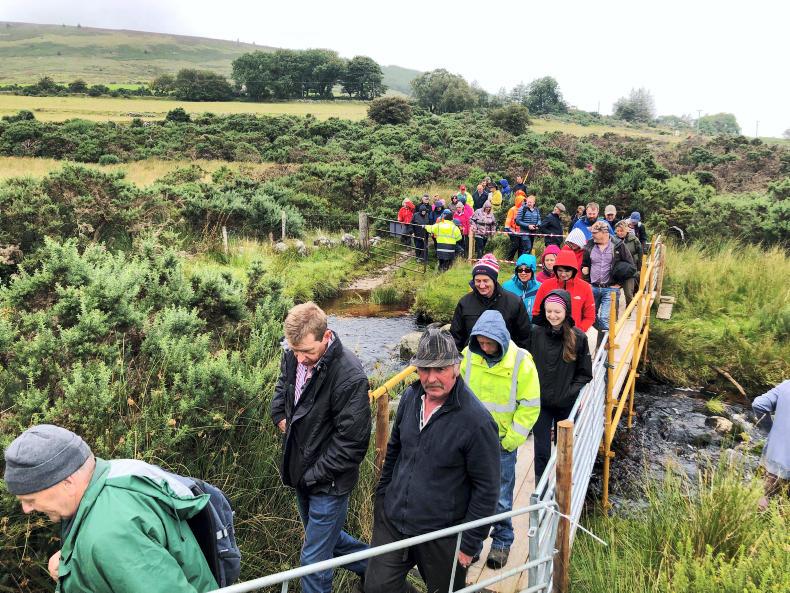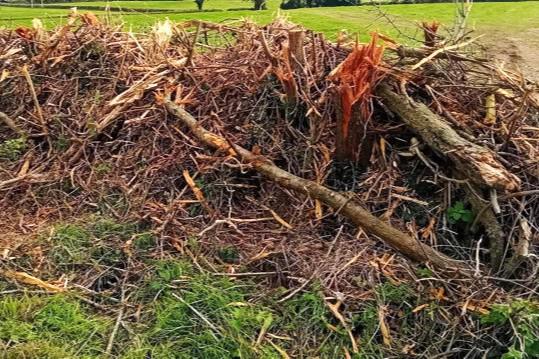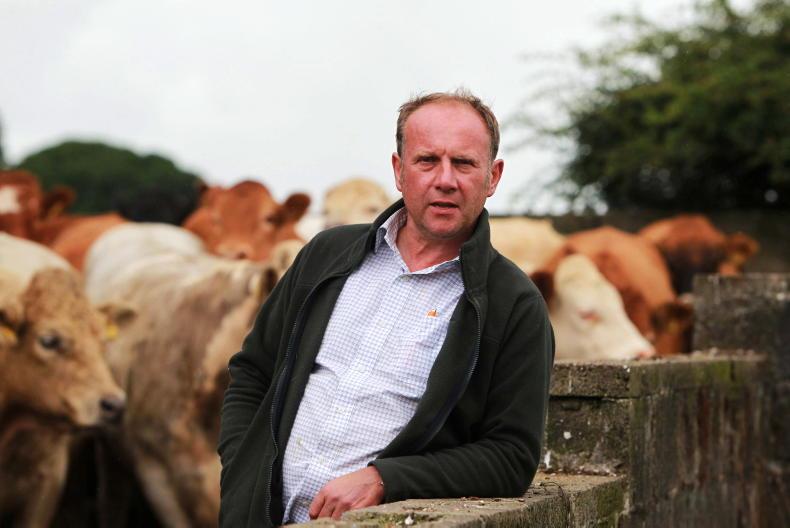The SUAS Project has secured almost €2m in funding and is running over five years. It is one of 23 EIP-AGRI projects in operation in Ireland and is designed to address the decline in the biodiversity and hill farming activities in the Wicklow and Dublin uplands.
A demonstration event was held in Hollywood Community Centre on Wednesday where project manager of the SUAS Project Declan Byrne, alongside other speakers including ecologist Enda Mullen, gave an overview of the project.
Project Manager of the West Wicklow SUAS Project, Declan Byrne, speaking about controlled burning on the hill and equipment used ?? @farmersjournal @FJSheep @WicklowUplands pic.twitter.com/qEdQGrhnhj
ADVERTISEMENT— Katriona Kinsella (@KatrionaKinsel1) August 20, 2019
A number of buses took groups of attendees to the Granamore commonages in the Wicklow mountains where commonage management, roadway and culvert repair gully planting, streamside vegetation and controlled burning practices were demonstrated.
????Ecologist Enda Mullen speaking at @WicklowUplands SUAS demonstration today up on the Granmore Commonage which is near the village of Hollywood in Co Wicklow. “The only reason for burning is to get fresh growth up to feed the sheep”. @farmersjournal pic.twitter.com/7ZrkVV4D33
— Katriona Kinsella (@KatrionaKinsel1) August 20, 2019
Minister of State at the Department of Agriculture Andrew Doyle said: "The template for this project was the Burren LIFE Project, it was discovered that the best people to carry out the project are the people who work it every day – the farmers – and reward them for their work.
"I think that in the next CAP we will see more and more emphasis on these type of projects. This project here has been our own model for others to follow."
Denis Halpin is the chair of the Granamore SUAS committee and has been farming the hill since he was eight-years-old.
There are around 700 to 800 sheep on the hill at the moment and there are around 1,119ac on the hill
“There are 10 farmers involved in this scheme, we meet every few months but in the summer we meet on the hill when we are going to do work or if something crops up.
"The controlled burning was done at the end of February and we did some tractor work where we cut the vegetation.
"There are around 700 to 800 sheep on the hill at the moment and there are around 1,119ac on the hill.
"We get paid for any training we do, we done a controlled burning course which we got paid for. If we come in here to a meeting we get paid hourly.
"We also get paid for any work on the hill like cleaning drainage or burning. There is a payment for 12 hours a week for whichever farmer wants to herd the sheep, an incentive to go up.”









SHARING OPTIONS